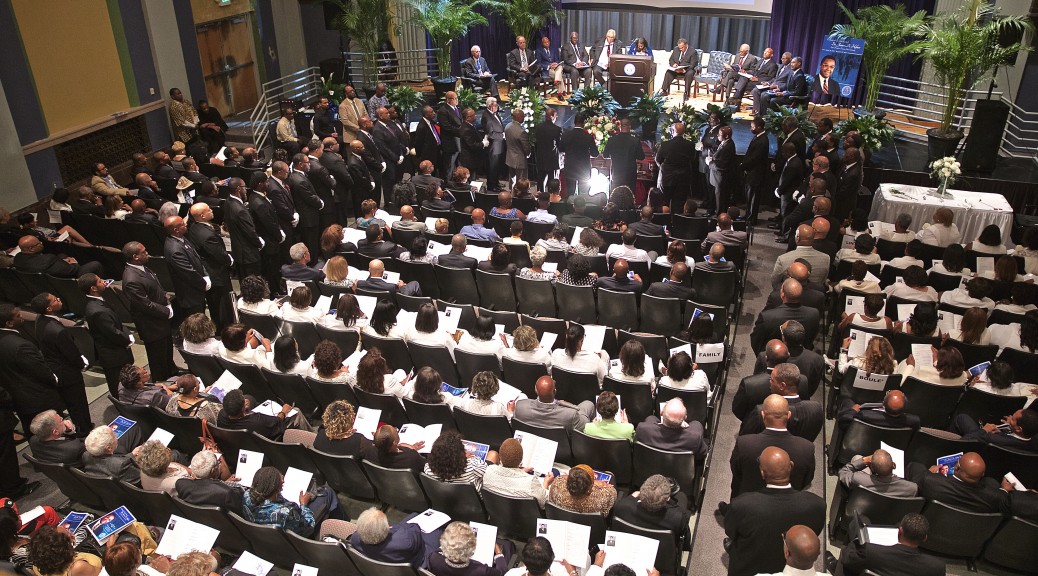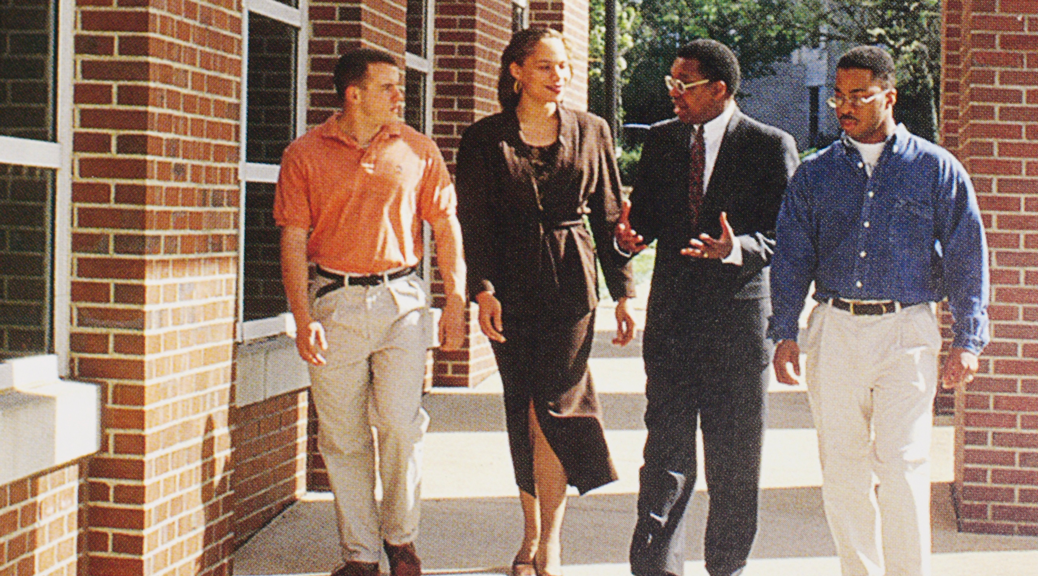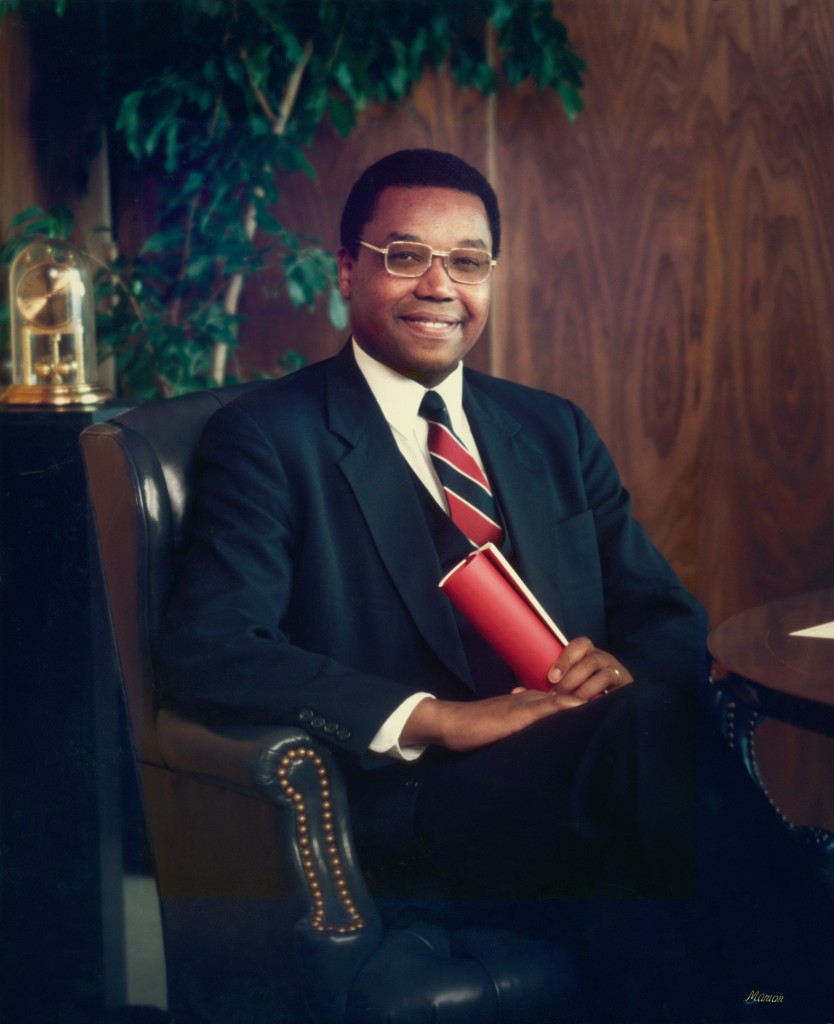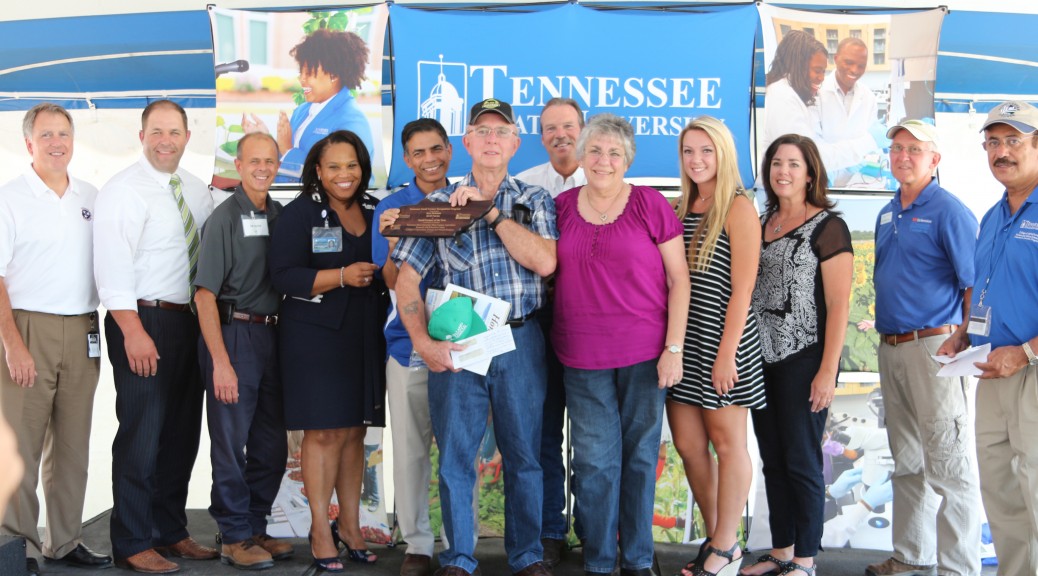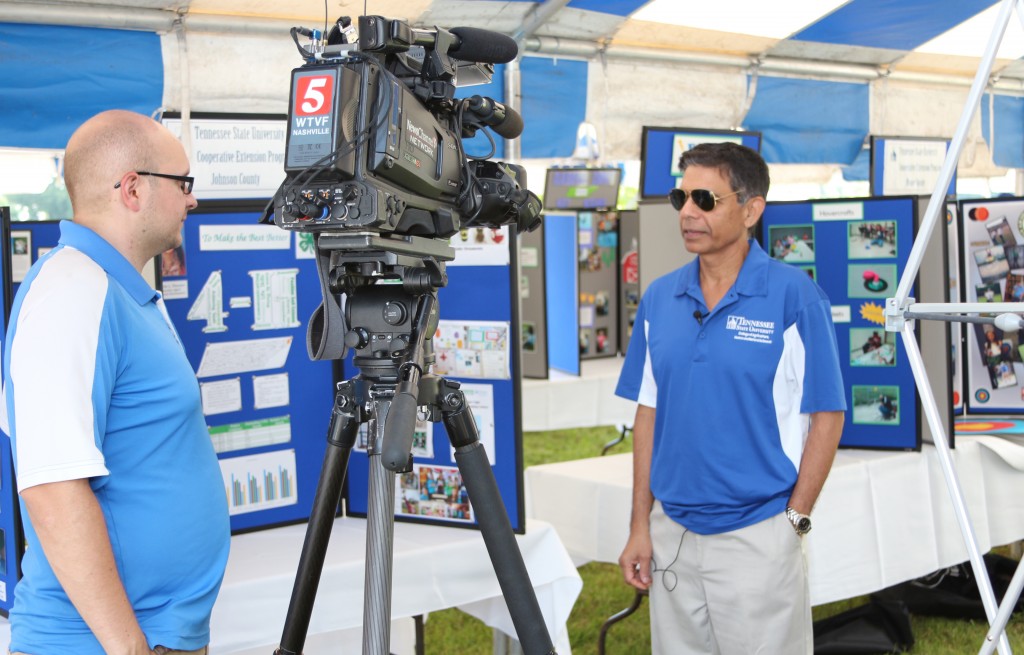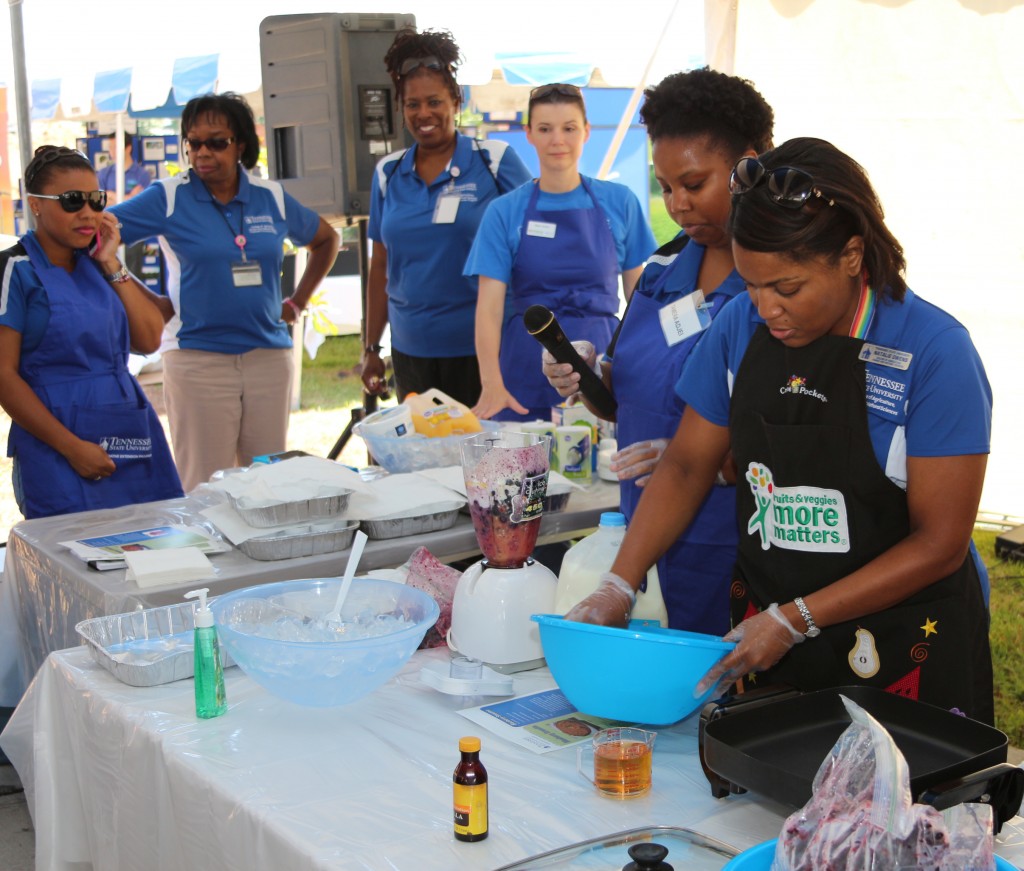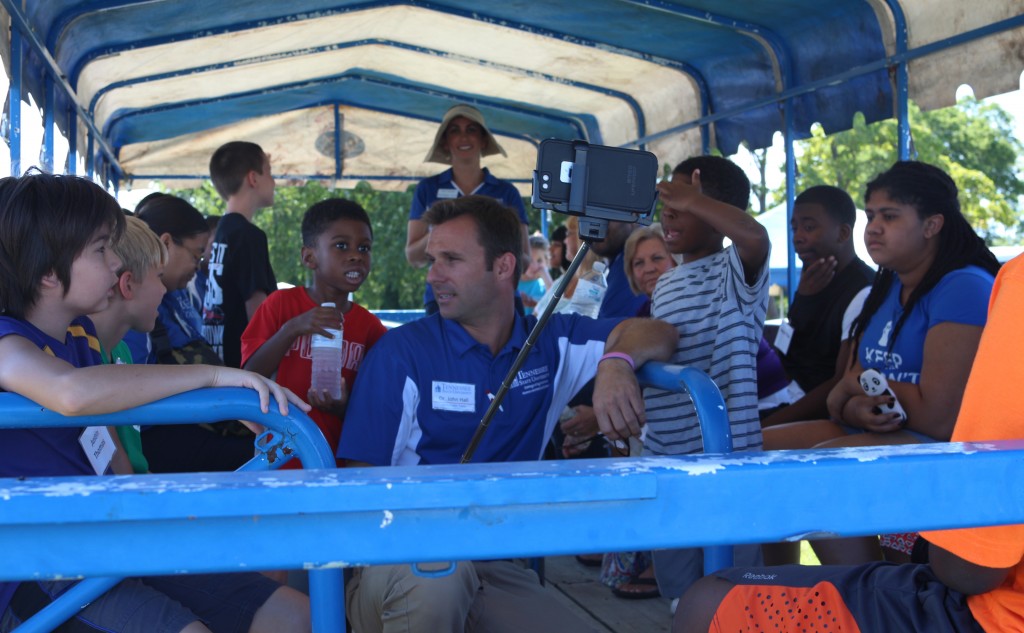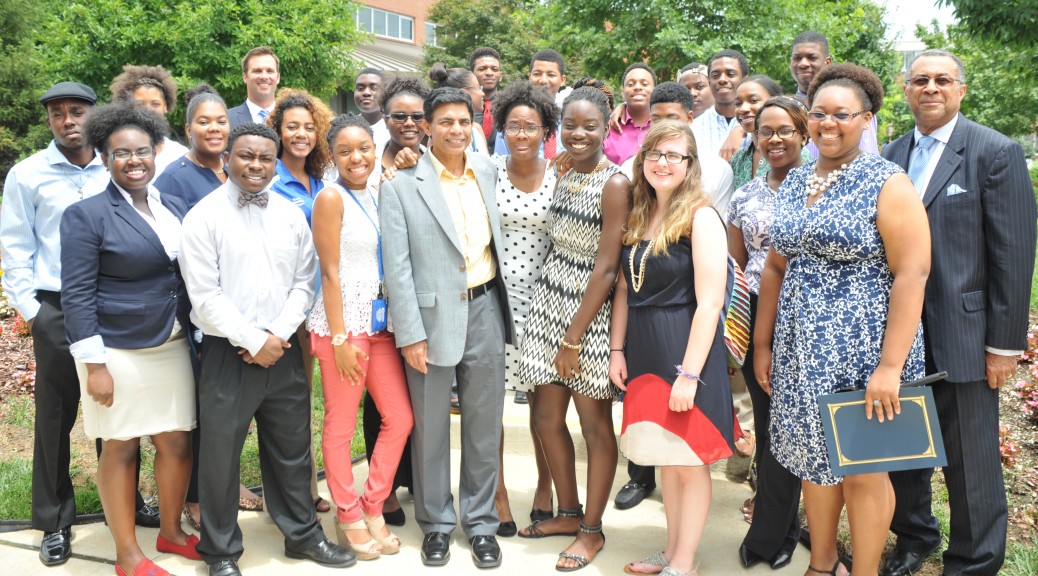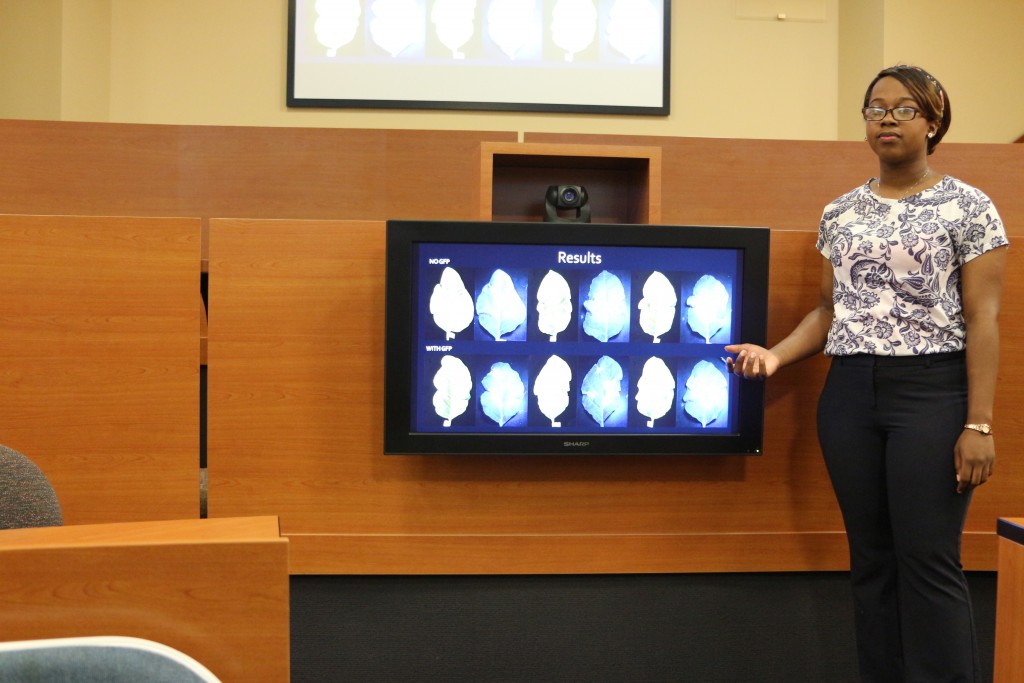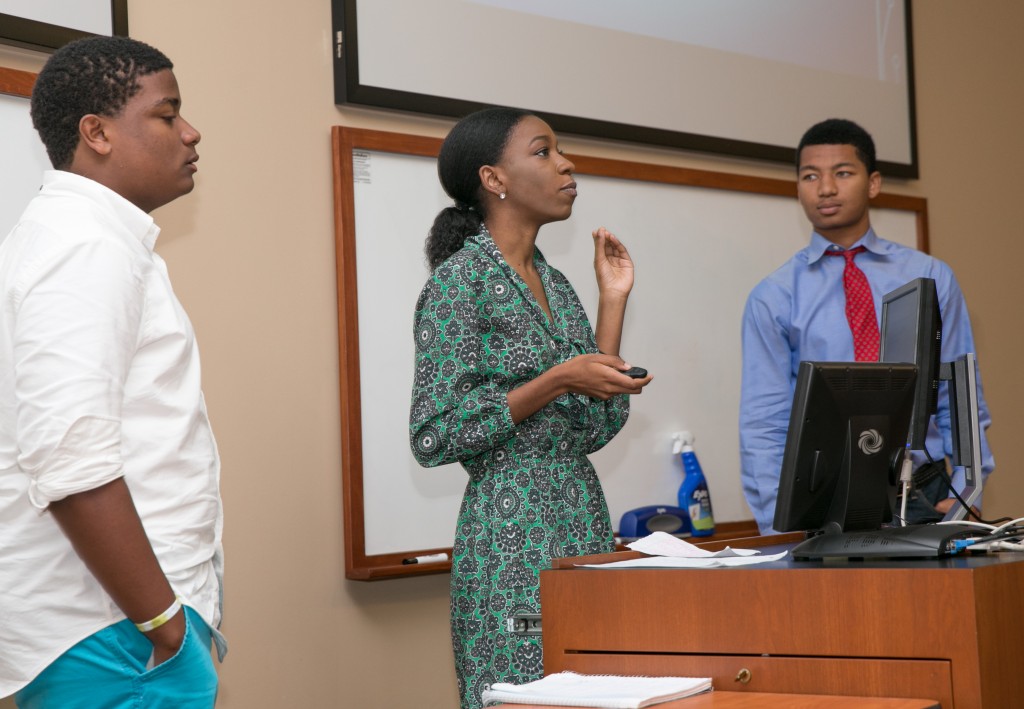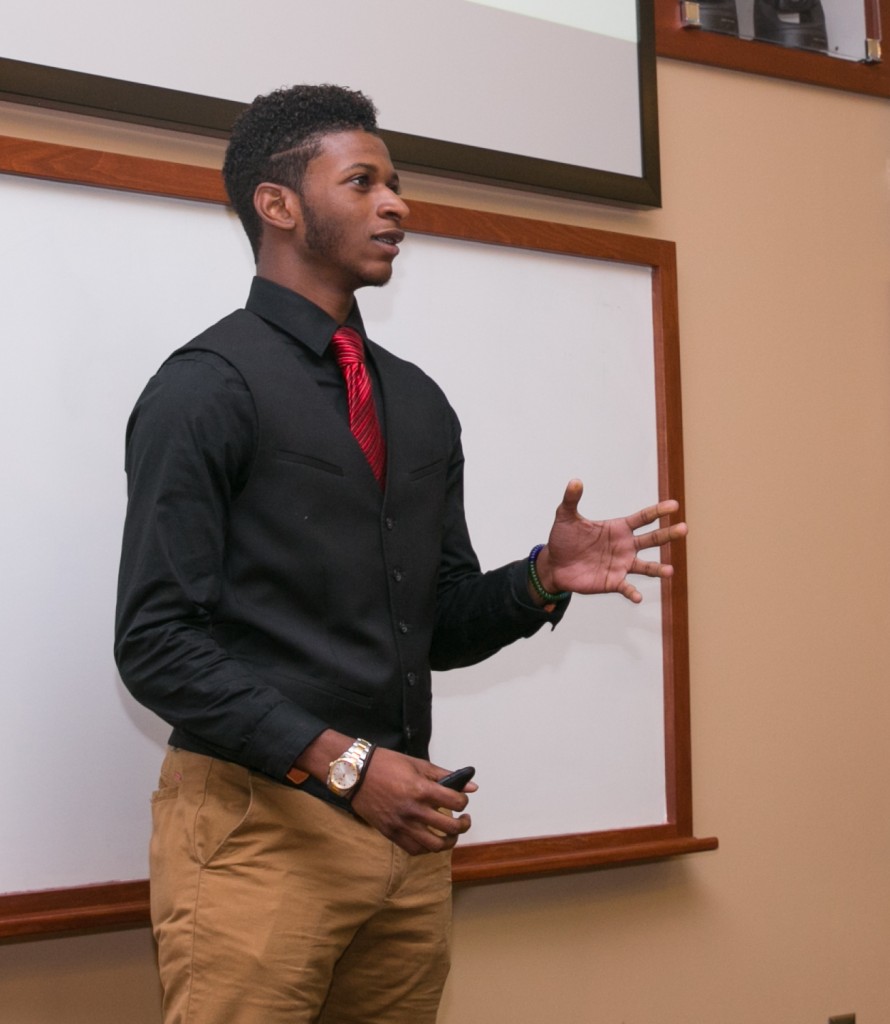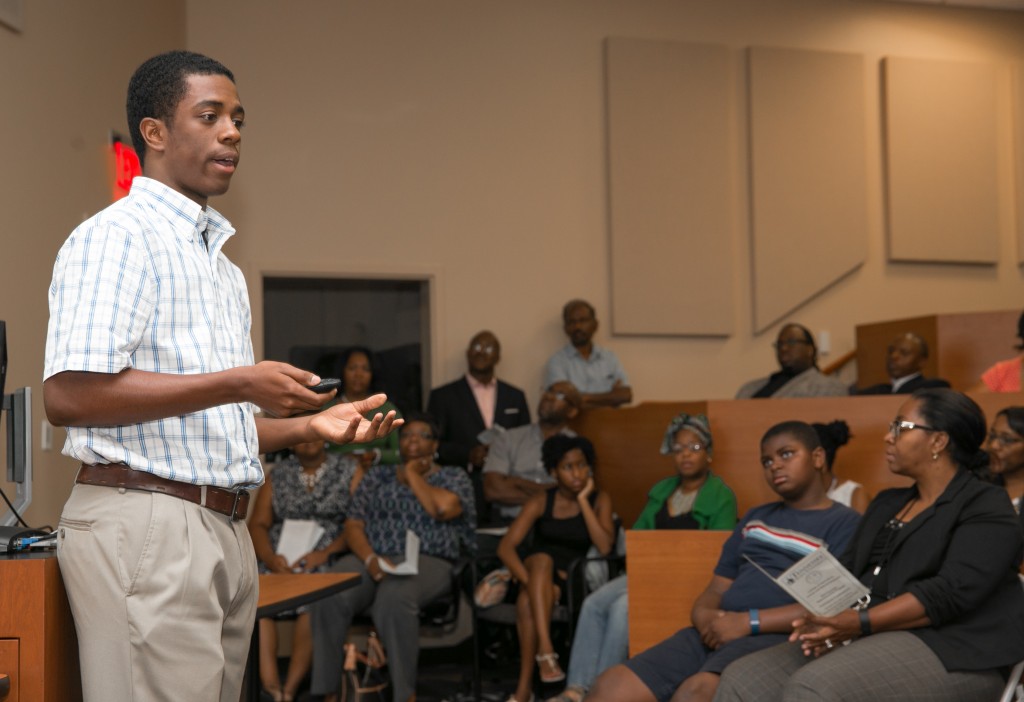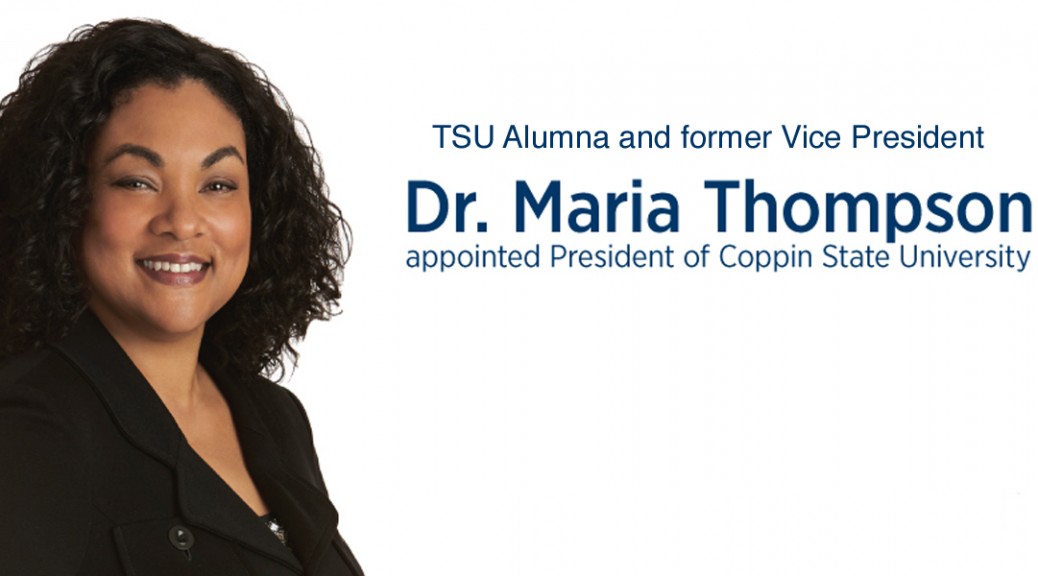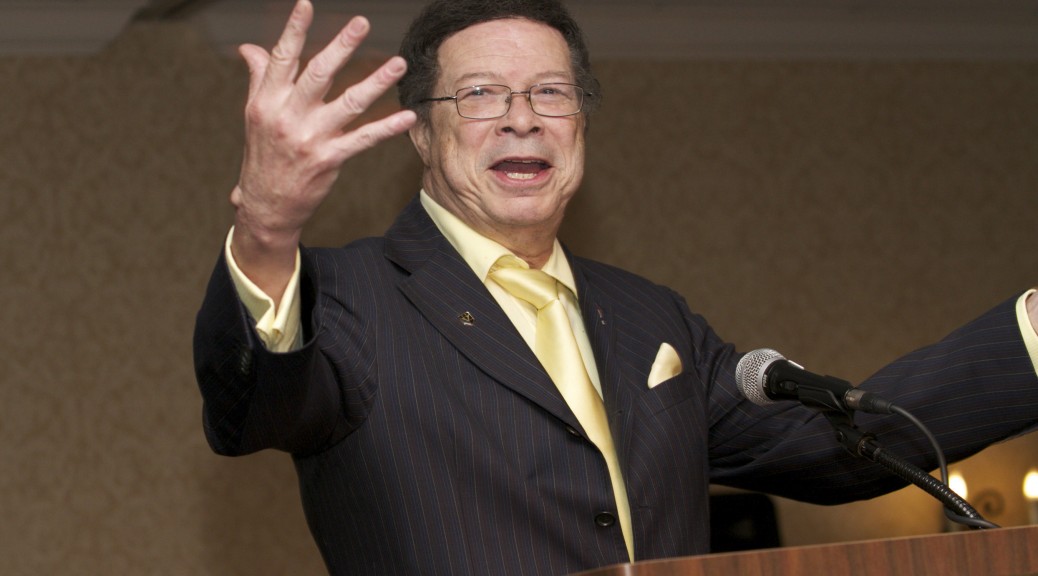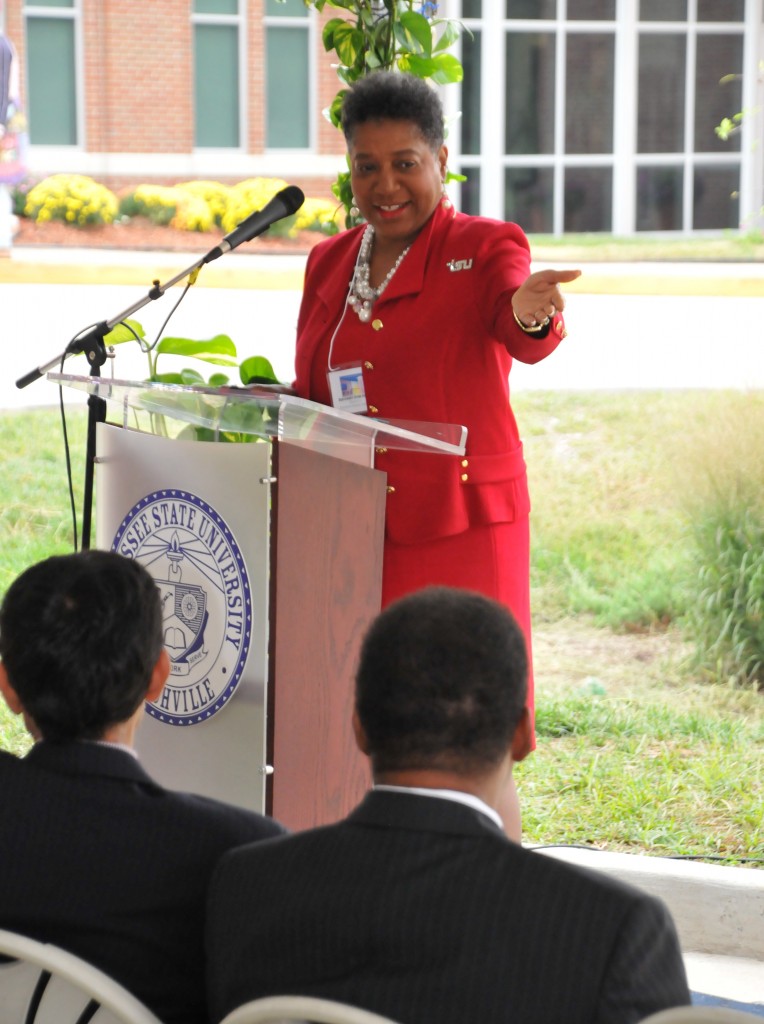NASHVILLE, Tenn. (TSU News Service) – In a packed memorial service in Poag Auditorium Sept. 2, speakers remembered former Tennessee State University President James A. Hefner for his brilliance, love of students and his “undying” commitment for quality black higher education.
“He won the respect of his colleagues and peers because he was smart and fearless as an educator, who wanted the best for his students,” said TSU President Glenda Glover, who referred to the late former president as a friend and mentor.
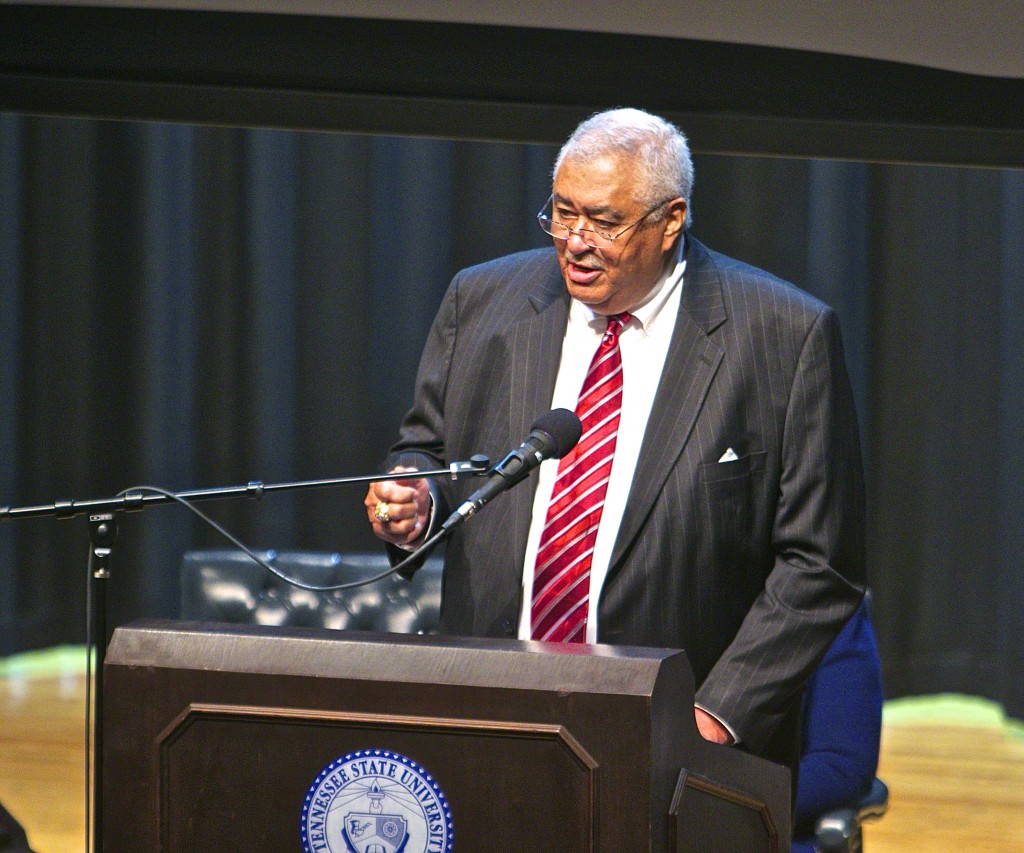
Glover was one of more than seven current and former university presidents who attended the service to pay tribute to their fallen colleague. They joined family members, friends and other dignitaries, including U.S. Congressman Jim Cooper in a standing-room only ceremony featuring traditional African drumbeats, songs and video presentations of Hefner’s views on HBCUs, black economic empowerment and family.
Tributes from across the nation from friends, schoolmates, former colleagues and acquaintances referred to Hefner as a skilled educator who was “serious and all about business.”
“He had a good mind and he cultivated it so others could benefit,” said former classmate and civil rights leader Jesse Jackson, who attended college with Hefner at North Carolina A&T University. Jackson’s tribute was read at the ceremony.
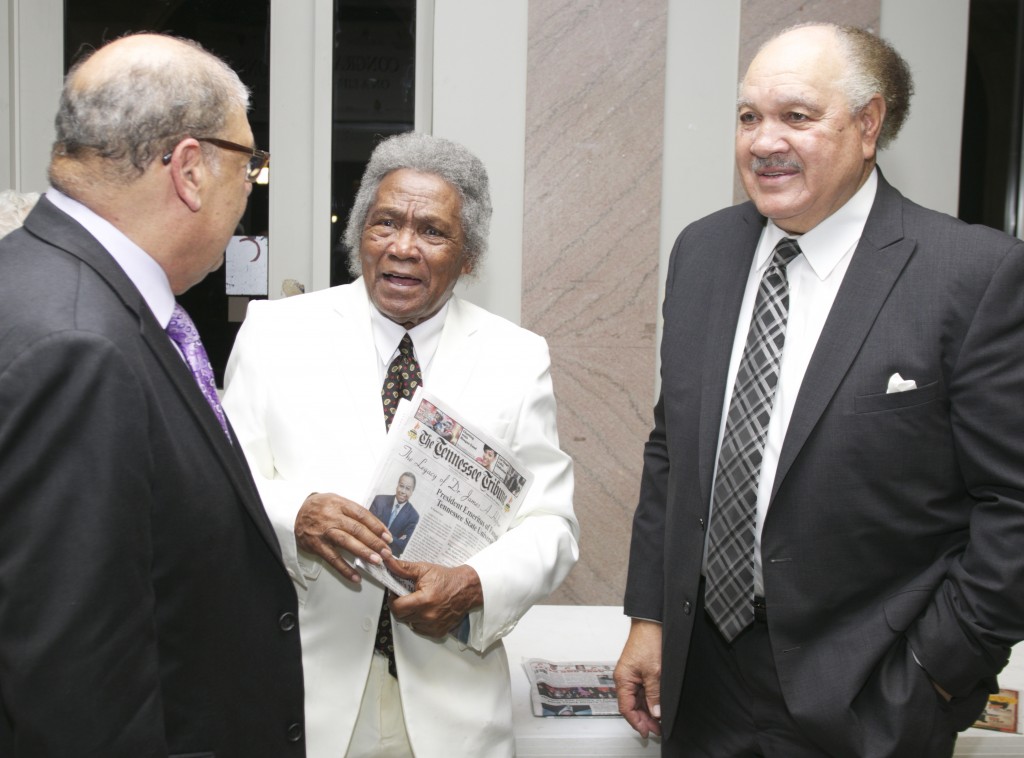
Hefner, the sixth president of TSU, who led the institution 14 years from 1991-2005, died from cancer Aug. 27 at his home in Brentwood, Tennessee. He was buried in Nashville Sept. 3 after funeral services at Christ Church Cathedral. Hefner was 76.
When asked recently how he would like to be remembered, Hefner said, “As an educator who cared about black higher education and the welfare of students.”
Former colleagues saw him as one who would do whatever it took to make sure students mattered the most.
“He was a very serious person,” said former TSU President and President Emeritus of Florida A&M University, Dr. Fred Humphries. “He was about making his life mean something, and about keeping alive the good works of HBCUs.”
Dr. Everett Freeman, former president of Albany State University and president of Community College of Denver, worked with Hefner at TSU and at Jackson State University, where the late leader served as president before coming to TSU.
He named football, the school band, education and family as Hefner’s biggest passions.
“But his ultimate concern was to make sure students mattered most,” said Freeman, who served as Hefner’s executive assistant at TSU.
Other current and former presidents who paid tribute to Hefner were: Dr. John Wilson, Morehouse College; and Dr. Robert Johnson, Clark Atlanta University. Also sharing tributes was former Nashville Mayor Bill Purcell, as well as well as former students David Winslow, Tennessee State; Thomas Scott, Morehouse; and Robert Scott, Jackson State.
Under Dr. Hefner’s leadership, TSU saw some of its most significant growth. He managed the end of the Geier desegregation case, in which TSU received an Endowment for Educational Excellence to support scholarship opportunities for exceptional students. He kicked off the university’s first capital fundraising campaign to increase TSU’s endowment, and saw the completion of the new Performing Arts Building, the final building in the $112 million capital improvements project which funded the construction of eight new facilities and renovations of existing structures on campus. See Brief Snapshot of Accomplishments.
Dr. Hefner’s long-standing career as an academician and executive administrator also included teaching and serving as research associate at Harvard University, Princeton University, Clark College, Florida A&M University, Benedict College and Prairie View A&M University. After retiring from TSU in 2005, he accepted a non-resident fellowship at Harvard University in the W.E.B. DuBois Institute for African and African-American Research and served as Visiting Distinguished Professor of Economics and Presidential Leadership at Texas Southern University.
Dr. Hefner earned degrees at North Carolina A&T State University in Greensboro, where he obtained his bachelor’s in business administration. At Atlanta University, he received a Master of Economics, and then went on to earn a Ph.D. in Economics from the University of Colorado at Boulder.
He is survived by his wife, Edwina Hefner; three sons: Christopher Hefner of St. Petersburg, Florida, Jonathan Hefner, M.D. and his wife Katrina of Atlanta, David Hefner, Ed.D. and his wife Tasha of Marietta, Georgia; 11 grandchildren; two brothers-in-law and a sister-in-law; and a host of other family and friends.
Department of Media Relations
Tennessee State University
3500 John Merritt Boulevard
Nashville, Tennessee 37209
615.963.5331
About Tennessee State University
With more than 9,000 students, Tennessee State University is Nashville’s only public university, and is a comprehensive, urban, co-educational, land-grant university offering 38 undergraduate, 22 graduate and seven doctoral programs. TSU has earned a top 20 ranking for Historically Black Colleges and Universities according to U.S. News and World Report, and rated as one of the top universities in the country by Washington Monthly for social mobility, research and community service. Founded in 1912, Tennessee State University celebrated 100 years in Nashville during 2012. Visit the University online at tnstate.edu.
